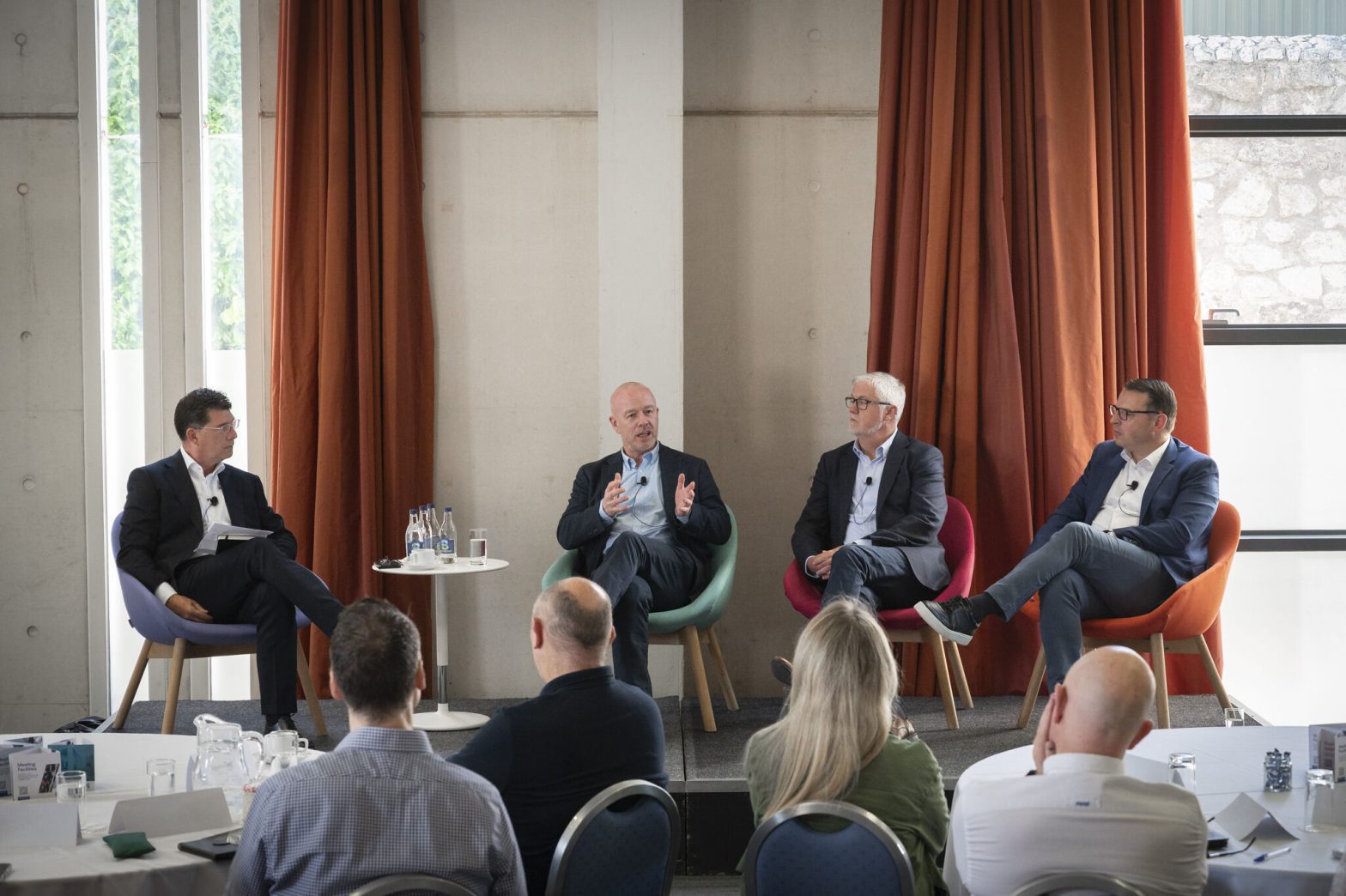Do You Hate Your Boss?
By Manfred F. R. Kets de Vries | 21st April 2017
Half of all employees in the United States have quit jobs at some point in their careers in order to get away from their bosses.
According to the most recent Gallup “State of the Global Workplace” study, half of all employees in the United States have quit jobs at some point in their careers in order to get away from their bosses. The figures are similar or even higher for workers in Europe, Asia, the Middle East, and Africa.

The same survey, consistent with previous ones, also shows a clear correlation between an employee’s engagement (that is, motivation and effort to achieve organisational goals) and his or her relationship with the boss. While 77% of employees who said they were engaged at work described interactions with their managers in positive terms (for example, “my supervisor focuses on my strengths”), only 23% of those who were “not engaged” and a mere 4% of the “actively disengaged” did the same. This is worrying because research has shown that an engaged workforce is a key driver of organisational success, and yet according to Gallup, only 13% of employees worldwide fall into that category.
 What are the “bad” bosses doing? Frequently cited grievances include micromanaging, bullying, avoiding conflict, ducking decisions, stealing credit, shifting blame, hoarding information, failing to listen, setting a poor example, slacking, and not developing staff. Such dysfunctional behaviour would make anyone unhappy and unproductive. However, whatever sins your boss commits, managing your relationship with him or her is a critical part of your job. Doing it well is a key indicator of how effective you are.
What are the “bad” bosses doing? Frequently cited grievances include micromanaging, bullying, avoiding conflict, ducking decisions, stealing credit, shifting blame, hoarding information, failing to listen, setting a poor example, slacking, and not developing staff. Such dysfunctional behaviour would make anyone unhappy and unproductive. However, whatever sins your boss commits, managing your relationship with him or her is a critical part of your job. Doing it well is a key indicator of how effective you are.
In my work as a researcher, management coach, and psychoanalyst, I have spent many decades working with senior and high-potential executives to help them resolve dysfunctional dynamics with their managers. This article explores the options available to anyone in the same predicament. Much of it will feel like common sense. But I have found that people often forget that it’s in their power to improve bad situations, so having the options systematically laid out can be very helpful.
Practice Empathy
The first step is to consider the external pressures your manager is under. Remember, most bad bosses are not inherently bad people; they’re good people with weaknesses that can be exacerbated by the pressure to lead and deliver results.
So it’s important to consider not just how they act but why they’re acting that way. Most bad bosses are not bad people; they’re good people with certain weaknesses.
It may seem difficult to feel for a manager who isn’t giving you what you need or whom you actively dislike. But as Goleman showed years ago, empathy can be learned. And recent research from other scholars, including experts at the Menninger Clinic, suggests that if you practice empathy consciously, your perceptions of others’ feelings will be more accurate.
The second step is to look at yourself. In my experience, people who struggle to work well with their bosses are nearly always part of the problem themselves: Their behaviour is in some way preventing them from being recognised and valued. This probably isn’t what you want to hear, but by acknowledging that you might be doing something wrong, figuring out what it is, and adjusting accordingly, you might be able to salvage the relationship.
Start with some introspection. Consider, as objectively as you can, any criticisms your boss has offered. In what areas do you need to improve? What aspects of your behaviour or output might irk him or her?
Also, ask yourself what might make your personalities clash. I often find after a fairly short discussion with clients that their managers are “transferential figures,” representing authority figures from the past with whom the clients have unresolved issues. Transference of this kind has a powerful influence on behaviour and should always be explicitly considered in figuring out dysfunctions in any boss-subordinate relationship.
Next, observe and seek advice from colleagues who work successfully with your boss. Try to understand his or her preferences, quirks, and hot buttons, and get some pointers on how you might do things differently. When you approach colleagues, though, make sure to frame any questions carefully. For instance, instead of asking a coworker why the boss always interrupts you when you speak, ask the person “How do you know whether to speak up or not? How can you tell when the boss does or doesn’t want input? How do you express disagreement?” Also, take advantage of group training programs to get advice from peers.
If feedback from your colleagues doesn’t provide any insights into how your behaviour might be hurting you, the next step is to try talking to your boss about the problem. Again, approach the conversation delicately, framing your questions in a positive way: “How can I better help you achieve your goals?” rather than “What am I doing wrong?” Position yourself as seeking advice or even mentoring. Request a one-on-one meeting to do this, and give your boss an idea of what you’d like to discuss: performance issues and the development of your management skills.
If you’re lucky, he or she will appreciate your willingness to engage and will point out areas to improve, building the foundation for a closer relationship. If your boss stonewalls or rebuffs you, however, that’s a clue that the problem isn’t you, and you need to figure out what—if anything—you can do to alter things.
Offer a Chance to Change
If you conclude you’re not the one derailing the relationship with your boss, only then should you openly suggest that the two of you don’t seem to interact well and that you’d like to remedy the situation.
There are a number of ways into this conversation. If you have the opportunity, you can tack it on as an extension of a frank discussion you’re already having. If a moment like this does not present itself, you have to initiate the conversation yourself. Most conflict management experts recommend doing that in a private setting where you can’t easily be interrupted and where it will be difficult for either of you to leave. To have a constructive talk, it’s important that people feel they are in a “safe place.” Invite your boss out to lunch, perhaps, at a restaurant where you are unlikely to meet colleagues. Explain that you have some private concerns you want to discuss away from the office. If a specific business problem, such as the failure to meet a crucial deadline, came about because of the friction between you, you can say you wish to talk about this event and its implications for other projects—the kind of postmortem that Jeanne and Richard had. Let your boss know to expect a difficult conversation—one that can’t be sidestepped. If you just say you want to discuss interpersonal issues, the boss may find some crisis that takes priority.
When you begin a dialogue, you may even discover that your boss is not consciously aware of the degree of your discontent.
Organise a Mutiny
If you can’t improve things by changing your behaviour or opening lines of communication with your boss, and if your colleagues feel the same way you do, you should consider alerting HR and the boss’s bosses to the problem.
In taking this route, however, you need to make a substantial business case for why your boss is a liability—someone whose poor management will ultimately cause the team’s, unit’s, or organisation’s performance to suffer. You must also be prepared to make a credible threat of litigation against the corporation. You’ll need documented evidence of the boss’s negative impact and inappropriate behaviour, such as witness statements and examples of correspondence that clearly breach company rules or HR guidelines. The more people willing to go on record with similar complaints and evidence, the harder it will be for senior managers to ignore or deny the problem.
Lodging a formal complaint is definitely a last resort.
In the absence of compelling data indicating a pattern of bad behaviour, HR representatives are unlikely to be allies; very often they will take the boss’s side.
Many subordinates who have not prepared a strong case against the boss have ended up losing their jobs rather than forcing a change of behaviour or practice. Mutiny and whistle-blowing can also damage your future job prospects. Lodging a formal complaint, therefore, is21st-centurya last resort.
Play for Time or Move On
If you are unable to change your relationship with your boss by taking the steps described, and if there isn’t potential for group action, then your options become more limited.
In these situations, most employees simply go through the motions at work and minimise contact with the boss. There is always the possibility, or hope that he or she will move on. But remember that in playing for time, you also need to set a time limit, so that hanging in doesn’t become a way of life. If it does, you will feel disengaged, disenchanted, and even embittered. And that may spill over to other realms, contributing to depression and a range of additional psychosomatic reactions.
The better solution is to look for another job while you’re still employed, exiting on your own terms. Beef up your résumé, contact headhunters, line up references, and start interviewing. Having a bad boss isn’t your fault, but staying with one is.
Adapted from HBR article http://bit.ly/2pKYkiM
Manfred will be delivering an IMI Masterclass in Cork on the 24th and Dublin on the 25th of May. The Leadership & Beyond Masterclass session will help you better understand the dynamics of leadership, teams and organisational culture along with how to create or manage an effective 21st century organisation. For more information on the Masterclass please contact our programme advisors on 1800 22 33 88 or email programmeadvisors@imi.ie
Manfred F. R. Kets de Vries is an executive coach, psychoanalyst, and management scholar. He is the Distinguished Clinical Professor of Leadership Development and Organizational Change at INSEAD in France, Singapore, and Abu Dhabi.




